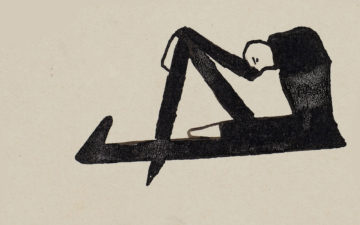Ross Benjamin in Aeon:
 On 9 October 1911, Franz Kafka, then 28 years old, wrote in his diary that he didn’t expect to reach the age of 40. At the time of this entry, he was not yet stricken with the tuberculosis that would lead to his death in 1924, shortly before his 41st birthday. What afflicted him at that time, making him doubt his longevity, was harder to pin down. Perhaps due to this very indefiniteness, it provided raw material for his aesthetic imagination:
On 9 October 1911, Franz Kafka, then 28 years old, wrote in his diary that he didn’t expect to reach the age of 40. At the time of this entry, he was not yet stricken with the tuberculosis that would lead to his death in 1924, shortly before his 41st birthday. What afflicted him at that time, making him doubt his longevity, was harder to pin down. Perhaps due to this very indefiniteness, it provided raw material for his aesthetic imagination:
I’ll hardly live to be forty years old, against that prospect speaks, for example, the tension that often lies over the left half of my skull, which feels like an inner leprosy and which, when I disregard the unpleasantness and try only to contemplate it, makes the same impression on me as the sight of the skull cross sections in textbooks or as an almost painless dissection while alive, where the knife a little bit cooling, careful, often stopping and turning back, sometimes lying at rest slices paper-thin coverings into even finer divisions very close to working brain parts.
– from The Diaries by Franz Kafka. This and subsequent translations by Ross Benjamin (2022).
The literary intensity with which Kafka portrayed his sense of physical malady is characteristic of his writing in his diaries, which he kept between 1909 and 1923; they offer an intimate glimpse into the transformative process by which he made even his most probing self-examination and his most agonising ordeals into a fertile source of invention.
More here.
